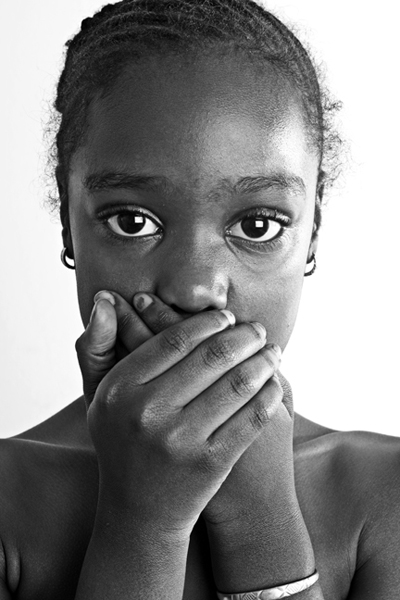Serendip is an independent site partnering with faculty at multiple colleges and universities around the world. Happy exploring!

Centering Across Time
SourceURL:file://localhost/Users/naninevalen/Desktop/Ecology/Centered%20Across%20Time.doc
Late Spring, 1970 /Late Summer, 2012
What makes a place feel like a center of the campus? Is it a physical center or an emotional or psychological center? Is it a place where something happened? Something good? Or a place that holds a disturbing memory of some kind? How, or where, can we approach our mind’s psychic centers and edges through the confines of physical space?
I was a sophomore at Bryn Mawr in 1970, 42 years ago. Yet now as I wander around, I discover I am drawn toward several places in particular – two are near the campus’s physical center. Taylor’s high tower marks a center of campus. All the “English” literature and most language classes were once held here.
West Philly Meander
It does not seem like there is a point in my day in which I go on a “proper” Thoreauvian walk; in fact, it does not seem that many places around me offer the possibility of walking without guided action. It was thus hard to imagine a free-roaming meander, a saunter, a true meditative exploration on the outskirts of University City. After all, every step you took has you along another path that someone has created specifically to lead you to McDondalds or Chipotle or the UPenn Library; down Locust Walk, where it is almost permissible to saunter, bikes zoom past you while sorority girls and frat boys drunkenly bop shoulders and shrill like windchimes. Between destinations your head needs to be up and perceptive; they key in this sentence is the assurance that one must always have a destination while walking; an aimless amble could put you in danger and lead you into the wrong type of situation.

Turning in Circles
Nature is a world onto itself, but like anything it is impossible to observe impartially. It always needs a lens through which to be seen, and on this clear September morning, that lens was me. I wish that I could say that I walked out of my dorm and was immediately struck by the beauty of the natural landscape; by the morning dew, and the robins with nest twigs, or the damp moss and the squishy mud. I did notice those things. Just not initially. I first had to learn to look for them. My first thoughts were along the lines of, “okay I’m outside walking. NOW what?” Then, as I strolled through Bryn Mawr’s campus, something interesting began to happen. I didn’t think so much about the natural world, nestled up against the old, man-made buildings, but I thought about my experiences in the place. I remembered deep conversations held in the grass outside of an archway, and sunny afternoons spent on a blanket getting sunburned. My experience of walking was more about my memories staged throughout the campus, rather than looking at the campus itself. However, the more I walked, the easier it got to simply be present in the moment and observe what was around me rather than jumping back into past experiences. I began to take note of the foliage and the stiff air and the chunks of quartz scattered on the ground.

A Moment To Break The Silence
 Taking my time, scrolling through the many images that my classmates had posted, I found that I kept going back to the image that Jomaira posted. This image stuck with me, even while I looked through the others. When I look at the young girl, it feels like her silence is partially self-induced. Though she looks like the silence is taking a toll on her it seems as if she cannot do anything about it. She has lost control of her voice and of her freedom to speak. But all at the same time, she is covering her mouth with her own hands. The power dynamic of control in this image can also be looked at through a different lense , it can also be a form of self-control; form that isn’t her primary option but one that she must choose.
Taking my time, scrolling through the many images that my classmates had posted, I found that I kept going back to the image that Jomaira posted. This image stuck with me, even while I looked through the others. When I look at the young girl, it feels like her silence is partially self-induced. Though she looks like the silence is taking a toll on her it seems as if she cannot do anything about it. She has lost control of her voice and of her freedom to speak. But all at the same time, she is covering her mouth with her own hands. The power dynamic of control in this image can also be looked at through a different lense , it can also be a form of self-control; form that isn’t her primary option but one that she must choose.
When I think back and find moments in my life where I have felt silenced, it seems as though I took the option of silencing myself. They are times when I felt that my primary opinion on something would be too much or just excessive. When location comes into these moments, they are all connected to being home. When I am at Bryn Mawr, I feel like my opinion will always be listened to, even if my listener does not agree with me. This is a community where I have learned to not let myself feel silenced because my peers have learned to listen to new opinions and take them in and instead of ignore them.

Blissfully Ignorant Wanderings
As I was about to begin my Thoreauvian walk around the Bryn Mawr campus, I considered briefly examining a map of the campus so I could get a better sense of where my walk might take me. But as I considered whether or not to do so, I thought back to how Thoreau described the Saunterers of the Middle Ages. Thoreau describes the Saunterers as wanderers whose intentions were to reach the Holy Land but were not bound to the final goal of reaching the Holy Land and rove and idly take their time in doing so. Unlike, the Saunterers I was not trying to get to one particular destination but like them I was perfectly content with wandering, soaking in the campus landscape and taking my time in doing so. Examining a map, I concluded, would conflict with the point of this walk because doing so would give a set idea of what I could expect on this walk of campus, rather than letting my own sauntering and exploration give me a sense of what the Bryn Mawr campus had to offer me. As a Haverford student, with the exceptions of the dining halls, and the locations of various classes and events I attended, I wasn’t as familiar with the campus as a Bryn Mawr student or faculty member who knew exactly what the campus had to offer. But because I had little knowledge of the campus, I had what Thoreau described as “useful ignorance”, in the sense that because I had no extensive knowledge of the majority of the campus and thus everything that I came across would seem new and fresh.
Blurred Boundaries
I’ve never been very good at wandering or walking without any sort of plan. Hence the reason a planned to circle the campus out edges and then explore its inner parts. Of course, like with any sort of plan, it inevitably changed. I began my walk after brunch, around noontime, heading down Erdman Driveway. In this part of campus, the boundaries were very clear, usually marked by sidewalks or beautifully trimmed bushes. After deciding that these boundaries were easily identified, I turned my attention toward my surroundings, marveling at the clear sky with perfect clouds and reading license plates. Eventually my gaze fell upon this little white house right beside the Admissions parking lot. Here began my true saunter and my plan began to fade away. I was able to identify the building as the site of Human Resources and continued through the parking lot to take a look at the next never-before-seen sight. After learning that the gate to Admissions was adorned with lanterns given to the college by the Alumnae Association to celebrate past, present and future Mawrters, I turned the corner onto Yarrow Street and was met with a yet another gateway that presented me with a little bit of a conundrum.

Bryn Mawr College: The Beginning of a New Chapter in My Life
I had some moments of introspection during my walk which I will touch upon more in this post. Firstly, I questioned my willingness to do "work" at nine in the morning; I am not and have never been a morning person, so it was curious to me that I had the get-up-and-go attitude that early in the morning. As I mentioned in my paper, I attribute that to being in college, where I can take whichever classes I want (most of the time) and do assignments because I want to, not just because I have to. In high school I was pressured by my college counselor to take classes that are "worthwhile," that "colleges would appreciate seeing on a transcript." Instead, I look classes like Environmental Science, Drama, and Geography because I liked them, thus severely perturbing my counselor. Still, I was always scrutinized for taking "the easy classes" and "not trying hard enough" to get into a "good college." But oh how the times have changed - my (former) college counselor now seeks help from me for college application. Yes, that same person that told me I probably won't get accepted anywhere and that "Bryn Mawr is a weird college" is now trying to sweet-talk me into doing his job for him. We'll see how that goes.

Silence

I was very struck by Anne’s idea that speaking up in class is akin to sharing, while staying quiet is selfish – somehow keeping brilliance under lock and key, and not giving the rest of the class access. I’ve never had a problem with talking in class, especially since coming to Bryn Mawr, but I often wish I could edit myself more and filter the ideas in my head slightly better before blurting them out. As much as I recognize that silencing oneself is not always a good thing, especially if it is out of censorship or fear or anxiety, I often find it helpful to just shut up and listen. When I silence myself in the classroom at any given moment, I notice that it tends to give someone else the opportunity to speak and share an idea. So is the converse true? Can my voice silence others?

A Guided Saunter
In order to walk through Bryn Mawr like Thoreau, I began at the center. I felt that as locating the center was an objective of mine, I could not let a predetermined destination interfere with the way nature wanted to take me. Nature was guiding me. Nothing else should be guiding me. Following Thoreau, I wanted to be guided unconsciously by “nature’s subtle magnetism” rather than by an end point. A walk should have no purpose or destination, so I set out on my sauntering walk to see where the walk took me.

Silence in two extremes
Silence is a precious item to find on this planet. Therefore, I picture it as the mystery hidden under the deep sea. Silence is far away but tempting. To visualize the concept of silence, I choose to use the deep sea as the representation of silence. Even though I describe silence in my graph as unknown, mysterious and isolated. My impression of the word silence is positive.



